
A World addicted to oil
Nalaka Gunawardene and Vindana Ariyawansa
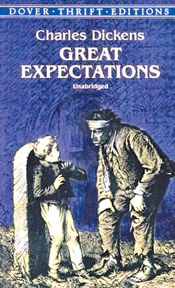 |
|
Great Expectations |
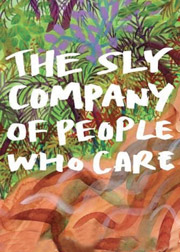
The Sly Company of People Who Care |
Will Sri Lanka strike oil? Are there sufficient petroleum deposits in
the territorial seas off our coast that can be extracted? These
questions keep coming up, spurring debate on the benefits and hazards of
a country suddenly discovering oil.
Sri Lanka has been prospecting for offshore oil since the early
1970s. The early attempts, with Soviet technical assistance, are best
remembered for the then government’s fabricated claims of striking oil
in Pesalai close to Mannar. More recently, Norwegian and Indian
expertise has been engaged in the quest but it has yet to produce
economically significant results.
Should we be banking future prosperity on oil at a time when the
whole world is trying to reduce its dependence on it? The twin crises of
high oil prices and global warming -- triggered largely by fossil fuel
burning - have challenged humanity rethink business as usual. As world
leaders gather in Rio de Janeiro this week to discuss the fate of our
planet, we look at the controversial history and uncertain future of
petroleum.
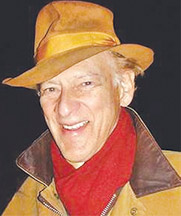 |
|
Christopher Ondaatje |
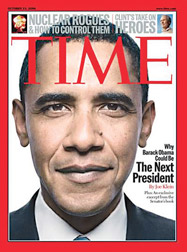 |
|
TIME - news magazine |
| |
* As at May 2012, the Organization of the Petroleum Exporting
Countries (OPEC) has 12 countries that hold membership of this
inter-governmental organization set up in 1960. These 12 members are
drawn from six in the Middle East, four in Africa, and two in South
America. A large Asian country, which joined OPEC in 1962, left the
membership in 2009 because it ceased to be a net exporter of oil. This
country could not fulfill the demand of its own country’s petroleum
needs, as growth in demand outstripped output. It now imports supplies
from producer countries like Iran, Saudi Arabia and Kuwait. What is this
country?
* The five founding member countries of OPEC, created at the Baghdad
Conference on September 1960, were Iran, Iraq, Kuwait, Saudi Arabia and
Venezuela. OPEC’s objective was, and still is, “to co-ordinate and unify
petroleum policies among Member Countries, in order to secure fair and
stable prices for petroleum producers; an efficient, economic and
regular supply of petroleum to consuming nations; and a fair return on
capital to those investing in the industry.” OPEC had its headquarters
in Geneva, Switzerland, during the first five years 1960-65 and then
moved it to another European city in September 1965 where it remains.
Which city?
* In 1977, The Economist magazine coined a new term to describe the
decline of the manufacturing sector in the Netherlands after the
discovery of a large natural gas field in 1959. It is now generically
used to describe negative consequences arising from large increases in a
country’s income. While primarily associated with a natural resource
discovery, it can also result from any large increase in foreign
currency, including foreign direct investment, foreign aid or a
substantial increase in natural resource prices. What is this term?
* “Ten years from now, twenty years from now, you will see: oil will
bring us ruin...Oil is the Devil’s excrement!” The man who uttered these
cautionary words in the 1970s was then oil minister of Venezuela, a
co-founder of OPEC. He said so at a time when recently discovered oil
was bringing Venezuela unprecedented wealth: his government’s 1973
revenues were larger than all previous years combined, raising hopes
that ‘black gold’ would catapult Venezuela straight to First World
status. It took his countrymen 25 years to see the wisdom of his words.
Whose words were these?
* Which small Asian economy was assessed by the International
Monetary Fund (IMF) as “the most oil-dependent economy in the world.” In
2009, income from petroleum exports accounted for about 95% of total
government revenue and almost 80% of gross national income (GNI) in this
country. Having discovered oil deposits a decade ago and started oil and
natural gas extraction in 2004, this country set up a Petroleum Fund in
2005, whose assets reached US$6.8 billion in late 2010 -- about 10 times
its entire non-oil income.
* “First rule of oil - addicts never tell the truth to their pushers.
We are the addicts, the oil producers are the pushers - we have never
had an honest conversation with the Saudis.” These are the words of a
leading New York Times journalist and columnist who reports and comments
on foreign affairs, environmental issues and energy. He has been
concerned about America’s dependence on foreign oil, often writing about
ways that green energy technologies that can reduce it. In 2006, he
conducted a Discovery Channel documented titled ‘Addicted to Oil’ where
he examined the geopolitical, economic and environmental consequences of
petroleum use. Who is this journalist?
* Biofuels are fuel sources that are derived from plants. It includes
fuels derived from biomass conversion, as well as solid biomass, liquid
fuels and biogas. A main type of biofuels is bio-ethanol, an alcohol
made by fermenting crops such as corn or sugarcane. Non-food sources
such as some trees and grasses can also be raw materials for
bio-ethanol. The United States and Brazil lead the industrial production
of ethanol fuel: in 2010, these two countries accounted for 88% of the
world’s production. From what crop plant is most of Brazil’s ethanol
derived?
|
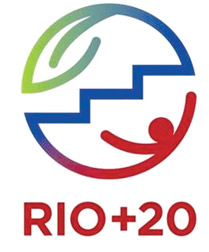
UNCSD logo |
* The Ondaatje Prize is an annual literary award given for a work of
fiction, non-fiction or poetry which evokes the ‘spirit of a place,’ and
which is written by someone who is a citizen of or who has been resident
in the Commonwealth or the Republic of Ireland. The prize is worth
10,000 British Pounds and bears the name of its benefactor, the
Lankan-born Canadian entrepreneur Christopher Ondaatje. Which
organisation administers this award?
* The Ondaatje prize 2012 was awarded to a debut novel titled The Sly
Company of People Who Care. It was written by a young Indian writer who
spent a year in Guyana before writing his novel, in which a 26-year-old
Indian journalist gives up his job to live in a country where he can
“escape the deadness of life.” Judges declared that they had ‘seldom
read a book with so much energy’ as this one. Who is the author?
* Great Expectations by Charles Dickens has been translated into many
language over the years since it was first published in serial form in
1860-61 in “All Year Around” (a British weekly literary magazine founded
and owned by Charles Dickens). It was translated into Sinhala as Romage
Wasanawa (meaning Roma’s Fortune). Who was the translator?
* Pinhami (The Boy and the Little Elephant; 42 mins, 1980), is one of
Lankan filmmaker Lester James Peries’ shorter feature films. Produced to
mark the International Year of the Child (1979), and aimed at younger
viewers, the film received the first prize at the Moscow International
Children’s Film Festival and a special Pravda award. Who wrote the
script of this film?
* A British weekly news magazine was founded by the Scottish
businessman and banker James Wilson in 1843 with the aim “to take part
in a severe contest between intelligence, which presses forward, and an
unworthy, timid ignorance obstructing our progress.” It is still in
publication, and now has a circulation of over 1.6 million copies with a
global outreach. What is its name?
* Time is the world’s largest weekly news magazine, with a worldwide
circulation 3.3 million copies. Time magazine was created in 1923 by two
young men (both 25 years old) who had previously worked together as
chairman and managing editor respectively of the Yale Daily News, who
saw the need for a weekly news and current affairs magazine as means of
educating a poorly informed American public. Two co-founders were very
different personalities, but between them gave their publication a
distinctive identity including a light-hearted writing style, known as
Timestyle. The first issue of Time was published on March 3, 1923. Who
were the co-founders, who transformed the reading habits of Americans?
* In early June 2012, the social-networking and micro-blogging
platform Twitter streamlined its bird image logo in an attempt to
simplify the ‘universally recognizable symbol of Twitter.’ According to
the company, the new look brings together the Twitter staff’s love of
ornithology, the need to design within creative constraints and simple
geometry. What is the name of Twitter’s iconic logo bird?
* The United Nations Conference on Sustainable Development (UNCSD),
also known as Rio+20, is being held in Rio de Janeiro, Brazil, in mid
June 2012. World leaders, along with thousands of participants from
governments, the private sector, NGOs and other groups will come
together to discuss and agree how we can reduce poverty, advance social
equity and ensure environmental protection. Rio+20 is a joint endeavour
of the entire UN System, and the organizing effort is headed by a
Conference Secretary-General, a national of China who is a career
diplomat with long years of experience in inter-governmental processes.
What is his name?
Last week’s answers
1. An Inconvenient Truth
2. Keanu Reeves
3. Leonardo DiCaprio
4. Yann Arthus-Bertrand
5. The Age of Stupid
6. Eric Schlosser
7. Last Call at the Oasis
8. Steven Soderbergh
9. ‘A Civil Action’
10. George Bernard Shaw
11. Siachen Glacier
12. Archbishop Desmond Tutu
13. Henarathgoda botanical garden, Gampaha
14. Francois Truffaut
15. Farewell Summer |



